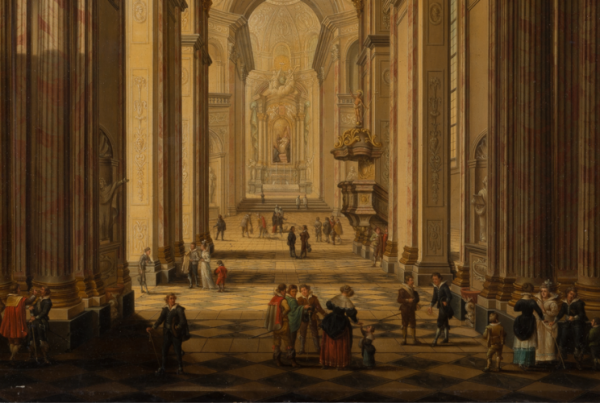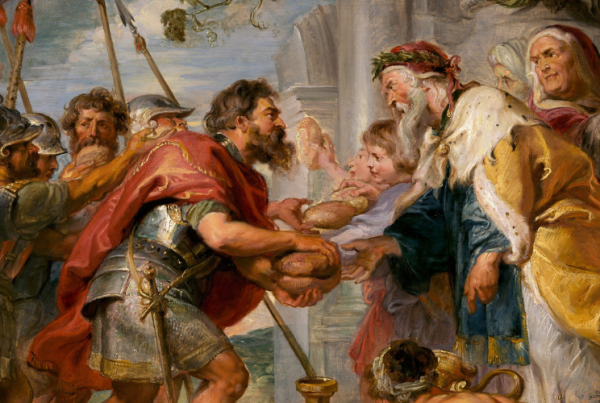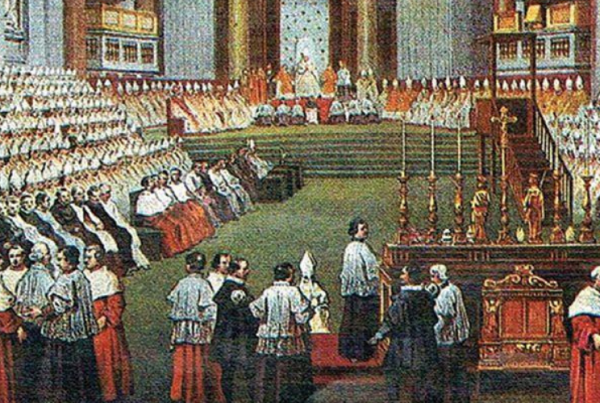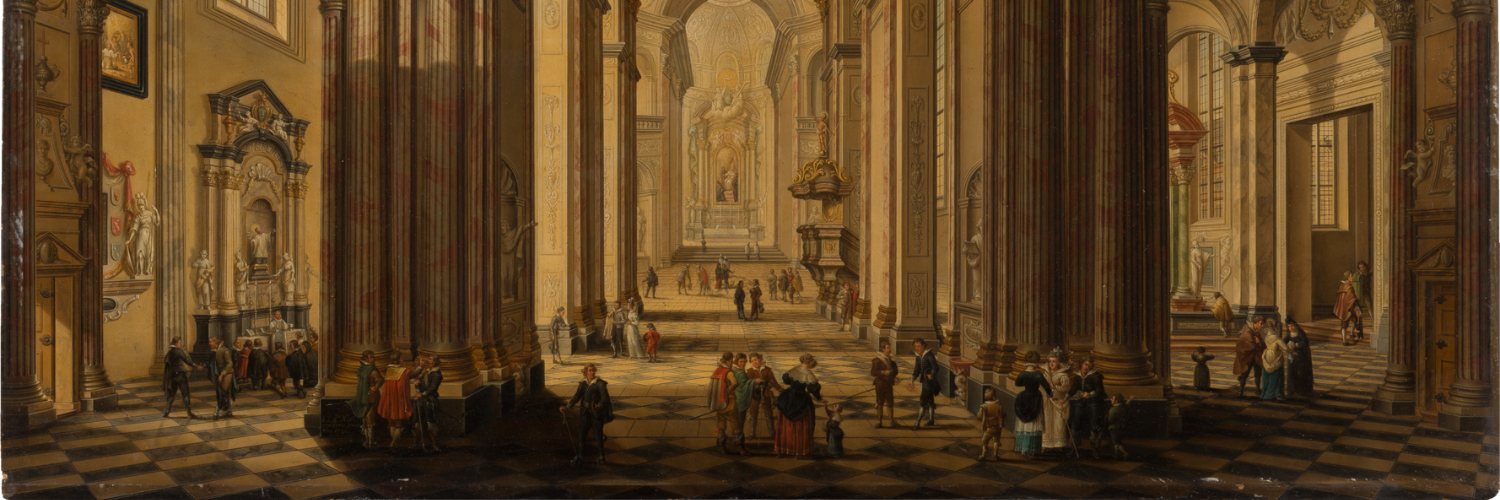
Can I start my
own Church?
Fr. Paul Stein
It seems like anybody and everybody is starting their own “church.” You can find them in storefronts and sometimes using a public school gym before they can afford to construct a proper “church” building.[1] Years ago, when a well-known Chicago priest threatened to leave the Catholic Church and start his own “church,” Cardinal George said something like this: he (the priest) can start his own church when he rises from the dead.
The word “church” is a translation of the Greek New Testament word ekklesia. It means a called out, or summoned, assembly of people. In ancient Athens, for example, it was the assembly of male citizens who qualified to participate in the governance of the city-state. In the Bible, Jesus clearly establishes not “a” church, but “the” church.
Beginning in the Old Testament, we see that God “elects” or selects Abram and promises to make of him a great nation: “The Lord said to Abram: Go forth from your land, your relatives, and from your father’s house to a land that I will show you. I will make of you a great nation, and I will bless you; I will make your name great, so that you will be a blessing.” (Gen 12:1-2).
The Jewish people were and are God’s chosen people, his elect. Abram was renamed Abraham and had a son named Isaac. Isaac’s son, Jacob, would receive a new name from God: Israel *Gen 32:29. Jacob/Israel had twelve sons, from whom came the twelve tribes of Israel. When they wound up in slavery in Egypt, he called them out,[2] passing through the Red Sea under the leadership of Moses; the eventual destination was the promised land.
In the New Testament, we read of how Jesus established the Church as the new People of God, extending God’s elect beyond the Jewish people to include the Gentiles, or non-Jews. When he began his public ministry, it states:
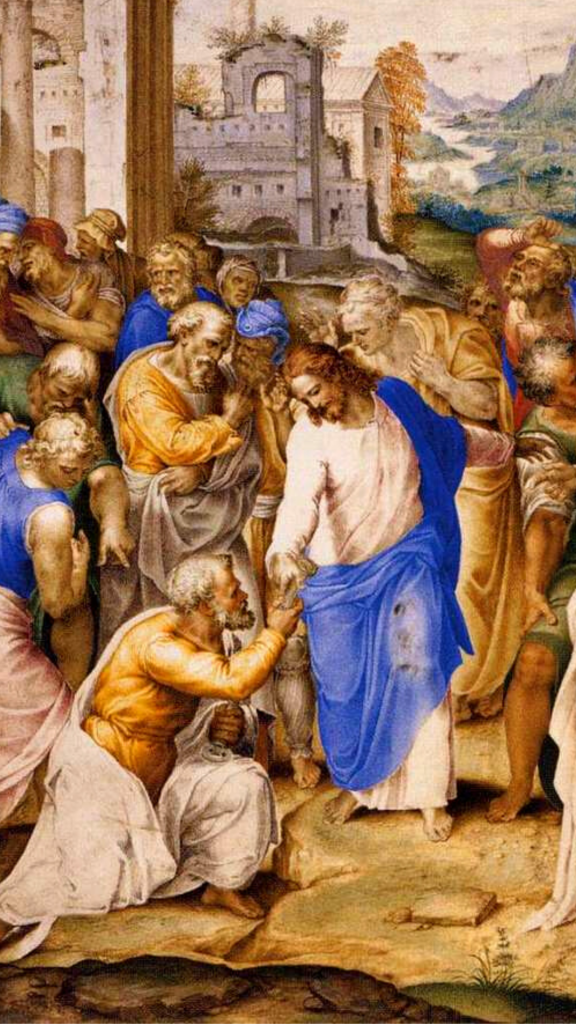
He left Nazareth and went to live in Capernaum by the sea, in the region of Zebulun and Naphtali, that what had been said through Isaiah the prophet might be fulfilled: “Land of Zebulun and land of Naphtali, the way to the sea, beyond the Jordan, Galilee of the Gentiles, the people who sit in darkness have seen a great light, on those dwelling in a land overshadowed by death light has arisen.” From that time on, Jesus began to preach and say, “Repent, for the kingdom of heaven is at hand.” (Matt 4:13-17)
He then goes on to call his first disciples (Matt 4:18-22). Of them, he chose twelve to be his apostles. He would explicitly form the twelve to lead the people he called, choosing Simon to be the first among the twelve, renaming him Peter: “Jesus said to him in reply, ‘Blessed are you, Simon son of Jonah. For flesh and blood has not revealed this to you, but my heavenly Father. And so I say to you, you are Peter, and upon this rock I will build my church, and the gates of the netherworld shall not prevail against it.” (Matt 16:17-18).
Then, after his passion, death, and resurrection, Jesus would commission them to go and call others to be a part of God’s people in the Church, starting with the waters of baptism and ending, if the person responds to God’s grace, in the promised land of heaven:
Jesus didn’t
found “a” church,
but “the” Church
Then Jesus approached and said to them, “All power in heaven and on earth has been given to me. Go, therefore, and make disciples of all nations, baptizing them in the name of the Father, and of the Son, and of the Holy Spirit, teaching them to observe all that I have commanded you. And behold, I am with you always, until the end of the age.” (Matt 28:18-20).
Jesus didn’t found “a” church, but “the” Church, the people called out of sin and death into light and life. A people God has elected or chosen to be his own forever if they but respond to his power working in them. These people are no longer limited to the Jewish people, but now also include the Gentiles, hence it is katholikos, which is Greek for “universal.” The first time in history it was called the Catholic Church was in 107 AD, in a letter of St. Ignatius of Antioch to the church located at Smyrna:
See that you all follow the bishop, even as Jesus Christ does the Father, and the presbytery as you would the apostles; and reverence the deacons, as being the institution of God. Let no man do anything connected with the Church without the bishop. Let that be deemed a proper Eucharist, which is [administered] either by the bishop or by one to whom he has entrusted it. Wherever the bishop shall appear, there let the multitude [of the people] also be; even as, wherever Jesus Christ is, there is the Catholic Church.
So, no, you can’t start your own church… unless you rise from the dead on your own power.
What This Means For Us
It is exciting to know that the “project” we are working on, as members of the Church, is ultimately not our project. It is a divine project. We are on a mission – which in Latin means “to be sent” – to which God calls us and, therefore, has an incredible depth of meaning. We didn’t join a club that some random human started, we were initiated into the Church, which the God-man started.
Footnotes
[1] Which begs a question: what should a church look like? A theatre… a stadium… or a lecture hall? For a Catholic, a church building should look like heaven. See the book of Revelation, chapters 4-8.
[2] “When Israel was a child I loved him, out of Egypt I called my son” (Hosea 11:1). This is also considered a Messianic prophecy to be fulfilled when Mary and Joseph left Egypt, after fleeing there to protect Jesus from the murderous intent of King Herod (Matt 2:15). Jesus relived the history of Israel, but did so perfectly, whereas the Israelites frequently sinned and failed to obey the Father’s commands.
For Further Reading On This Topic
